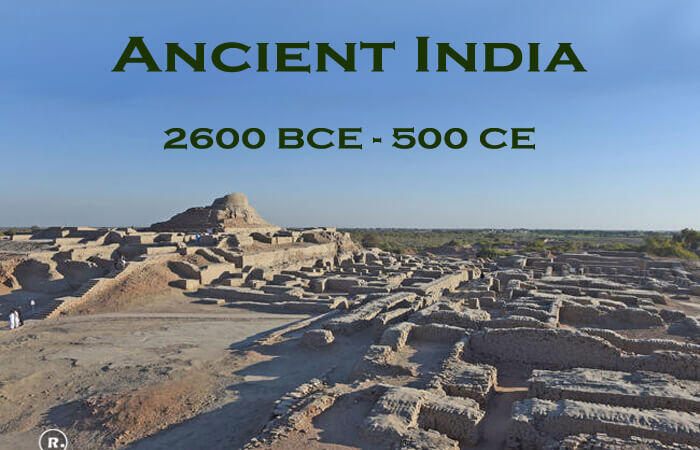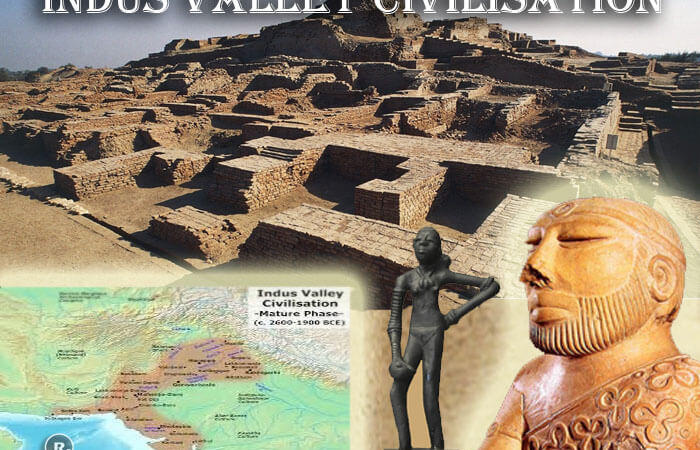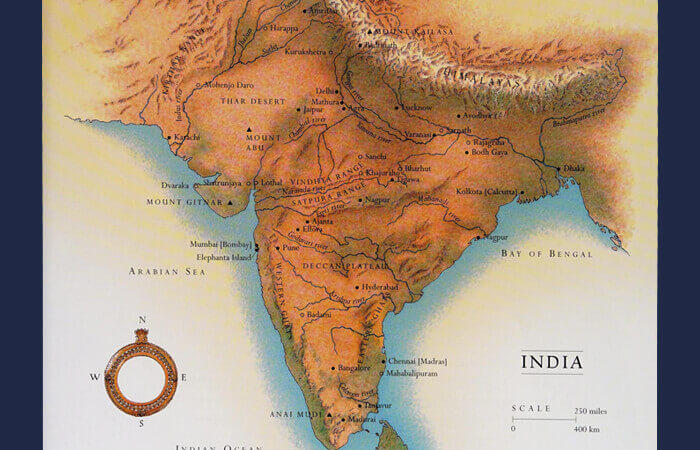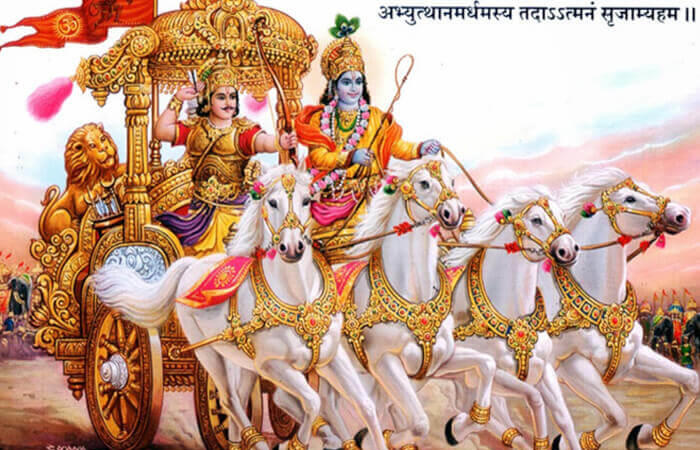10 Interesting Facts About Chhatrapati Shivaji
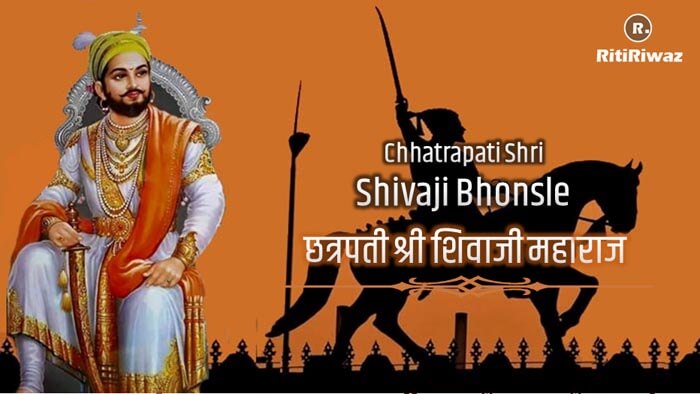
Chhatrapati Shivaji Maharaj was one most courageous, clever, and ethical Hindu rulers in the history of India. He possessed virtues of kindness, toleration, good behavior, courage, chivalry, determination, good intentions, etc. Though his means were very limited and he was not properly educated, yet with bravery, courage, and cleverness, he fought several battles against a huge army of powerful Mughals like Aurangzeb and increased his power manifold.
It was the time when the whole of India was under the rule of Muslims, Shivaji with his unique personality created a completely new chapter in history by establishing an independent Hindu state. He got unparalleled political smartness, intelligence, courage, admirable character due to which he is respected in all other religions too. He always had goodwill towards the people of other communities, there was no place for religious and caste discrimination in his politics. Shivaji was a great ruler he was not only praised in his country but also by his enemies and many Western critics too. Let us know some interesting facts about the mighty ruler of India.
Secular ruler
Shivaji was a valiant king and a secular ruler known for his bravery and tactics. Shivaji cherished the highest wisdom of the oneness of religions. He did not acknowledge the authority of priests or allow any discrimination on the basis of caste or creed. His army was primarily constituted of sons of the soil and had a lot of Muslim soldiers. Hindus of all castes, Muslims of sea coasts, all found employment in the Navy. Shivaji wanted the spirit of dharma to spread in the state. The word virtue conveys well the meaning of the word Dharma. He strongly believed that in his activities a benevolent Providence guided him, he respected all faiths. He made no discrimination between a Muslim and a Hindu or a Sikh in administration.
Father of the Indian navy
Chatrapati Shivaji Maharaj was the founder of the Maratha Empire in western India. He is known for his innovative military tactics that centered around non-conventional methods leveraging strategic factors like geography, speed, and surprise to defeat his more powerful enemies. The Maratha Empire is credited with laying the Indian Navy foundation and bringing about considerable changes in naval warfare by introducing a blue-water navy. The Marathas established a Naval force, consisting of cannons mounted on ships.
Shivaji built a strong naval presence across the long coast of Konkan and Goa to protect sea trade, to protect the lands from the sack of prosperity of subjects from coastal raids, plunder, and destruction by Arabs, Portuguese, British, Abyssinians, and pirates. Shivaji built ships in towns such as Kalyan, Bhivandi, and Goa for building a fighting navy as well as trade. He also built a number of sea forts and bases for repair, storage, and shelter. By the middle of the 17th century, the Maratha naval fleet had around 20 warships. Shivaji even employed a number of Portuguese naval officers to command their own fleet.
Shivaji name derived from Goddess
There are few in the world who get name and fame on the basis of their families, but there are some others also who brighten the name of their families with their own deeds and Chhatrapati Shivaji was such person. He was a descendant of the Bhosle family and his name was not derived from Lord Shiva’s name, but in fact, it was derived from the name of a regional deity Shivai. It is said that his mother Jijabai prayed to goddess Shivai for a healthy child.
Formed army of Maratha
Shivaji built a massive force and knew the importance of a good army, and with his skills, he expanded his army from 2000 soldiers to 10,000 soldiers. Shivaji’s army was a well-organized and disciplined force. It had six divisions namely, cavalry, infantry, camel battalions, elephant battalions, artillery, and navy. The most important section of the army was the cavalry which was divided into Paga or Bargi and Shiladar. Shivaji also introduced the system of branding the horses and maintaining the identity of the soldiers. He paid the soldiers in cash and recruited them on merit. The soldiers were trained in the guerilla tactics of warfare which was very useful in the geographical location of the Maratha territory.
‘Mountain Rat’ (a proponent of guerrilla warfare)
He was the pioneer of Guerilla warfare tactics. He was called ‘Mountain Rat‘ because of his awareness of the geography of his land, and guerrilla tactics like raiding, ambushing, and surprise attacks on his enemies. Marathas fought a guerrilla war for 22yrs and destroyed the Mughal Empire. Shivaji fortified the mighty mountains of the Sahyadris and built coastal forts. He revived ancient Hindu political traditions and encouraged the use of Marathi and Sanskrit in his court correspondence, rather than the unwieldy Persian, a relic of the Islamic rule.
Arrest and Escape from Agra
To keep Shivaji Maharaj away from Deccan politics, Jaisingh proposed to Shivaji Maharaj that he should visit Agra and meet the Emperor. Shivaji Maharaj, accompanied by Prince Sambhaji and a few of his trusted people, set out for Agra. Aurangzeb did not treat him with due honor at his court, because of which Shivaji Maharaj expressed his anger. Seeing this, Aurangzeb put Shivaji Maharaj under house arrest. Despite this, Shivaji Maharaj escaped from Agra in a skillful way and reached Maharashtra safely after a few days. While returning from Agra, he had left Sambhaji Raje at Mathura for safety purposes. Later, he was too brought safely to Rajgad.
Honor for women
Shivaji was molded and nurtured by his mother so he developed a reverence for women. He opposed all kinds of violence, harassment, and dishonor against women. He punished those who erred against women and protected and honored the women captives during the war though they belonged to an enemy nation. No woman was permitted to accompany the troops. The plunder taken during campaigns was strictly accounted for. Killing or torturing women and children, looting the Brahmana, destroying standing crops, etc during the war were punishable offenses.
Offered help to Aurangzeb. in conquering Bijapur
Shivaji maintained peaceful relation with the Mughals, he even offered help to Aurangzeb to conquer Bijapur. In return, he was offered full rights to control the Bijapur forts and villages under his possession. But things turned sour between them when his officers raided the Mughal territory near Ahmednagar. In retaliation, they raided Shivaji’s territory.
Janta Raja (enlightened king)
Shivaji was Jaanta Raja (King who knows) understanding the plight of ryot. His daring and military skill, coupled with his sternness towards the oppressors of the Hindus, won him the adulation of all. He was the king who introduced a system to measure lands and hence devised a system to tax according to yields. When Aurangzeb imposed the Jizya tax on Hindus, Shivaji was the only Hindu ruler who protested against it. He believed that different religions are colors of God. He was a merciful monarch who created a new army of untouchables – called as Mahar regiment. When thinking of even touching Shudras was an offense, he sat down with them to eat with them and gave them equal status.
He resisted the rule of Mughal and Adishahi
Aurangzeb did not venture into Maharashtra when Shivaji was alive, such was the potency of his memory that Marathas fought a guerrilla war for 22yrs and destroyed the Mughal Empire. He fought a series of battles against the Adishahi Sultanate of Bijapur and the Mughal Empire. It is from Marathas that Britishers took over India, the Mughal Empire was dead and buried along with Aurangazeb.
Today Shivaji is a National hero of India. His life forms an integral part of the upbringing and identity of the Marathi people. He is also regarded as a warrior legend, who paved way for Indian Independence.

